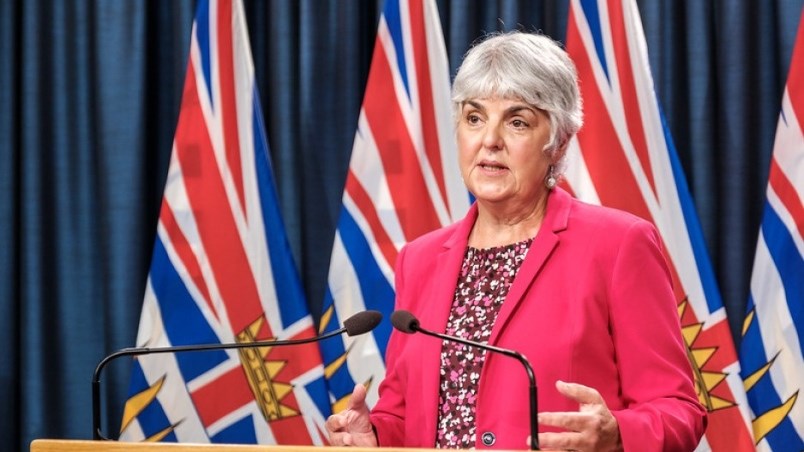B.C. government expenses jumped $7.7 billion as a result of measures to deal with the COVID-19 pandemic, Finance Minister Carole James said Sept. 10.
That’s in line with the $7.6 billion the government has spent on its pandemic actions.
However, James said, the projected provincial debt is now $59.8 billion.
“These are unprecedented times,” James said. “We may face future waves of the virus.
“COVID-19 has had a huge impact.”
James said a drop in provincial revenue and unprecedented spending on supporting people and businesses has led to a deficit forecast of $12.8 billion for the 2020-21 fiscal year.
That’s a long way from the $227 million surplus James was predicting before the pandemic, a change of $13.02 billion.
Some $6.2 billion in tax and payment deferrals has gone to provide cash flow support to individuals, businesses and local governments
As of Aug. 31, there has been $5 billion in pandemic spending measures.
James said in the 2020 first quarterly report that the deficit is on track with the province's July fiscal and economic scenario.
"The pandemic has threatened lives and livelihoods, and our government responded with one of the most supportive, comprehensive action plans in the country," James said.
by
James reported a projected annual real GDP decline of 6.7 per cent in 2020 with partial economic recovery in 2021, and lower revenue of $4.6 billion in 2020/21 compared to this year’s budget.
The minister said there were 149,600 jobs in August than in February and that the unemployment rate sits at 10.7% for the month compared to February’s 5%.
The biggest job losses were in the wholesale and retail trade; information, culture and recreation; construction; business building and support services; and accommodation and food services.
Consumer spending dropped most in clothing, clothing accessories and gasoline.
Housing starts have remained above the historical average and prices and sales have rebounded.
In the July outlook, James said corporate profits were expected to drop 36.4 in 202 and grow to 16.3 in 2021. Those figures have been revised to a drop of 18.6% with 6.1% growth next year.
Projected tax revenues have pared $4.57 billion from the budgeted figure of $60.58 billion.
There have been more than $6.2 billion in tax and payment deferrals including $70 million in deferrals for a six-month moratorium on student loan collection, $103 million for BC Hydro relief measures for residential and commercial customers and bill deferrals for industrial customers, more than $1 billion in deferrals by postponing municipal remittance date for school taxes to the end of the calendar year and in excess of $5 billion in deferrals by extending tax filing and payment deadlines:
The report confirms revenue declines in taxation, natural resources and other sources that were anticipated in July.
The updated deficit forecast includes a $1-billion forecast allowance as part of the government's commitment to economic prudence in response to the heightened uncertainty brought by COVID-19.
As part of the COVID-19 Action Plan, $1.5 billion has been earmarked for economic recovery measures to be announced in September, James said.



